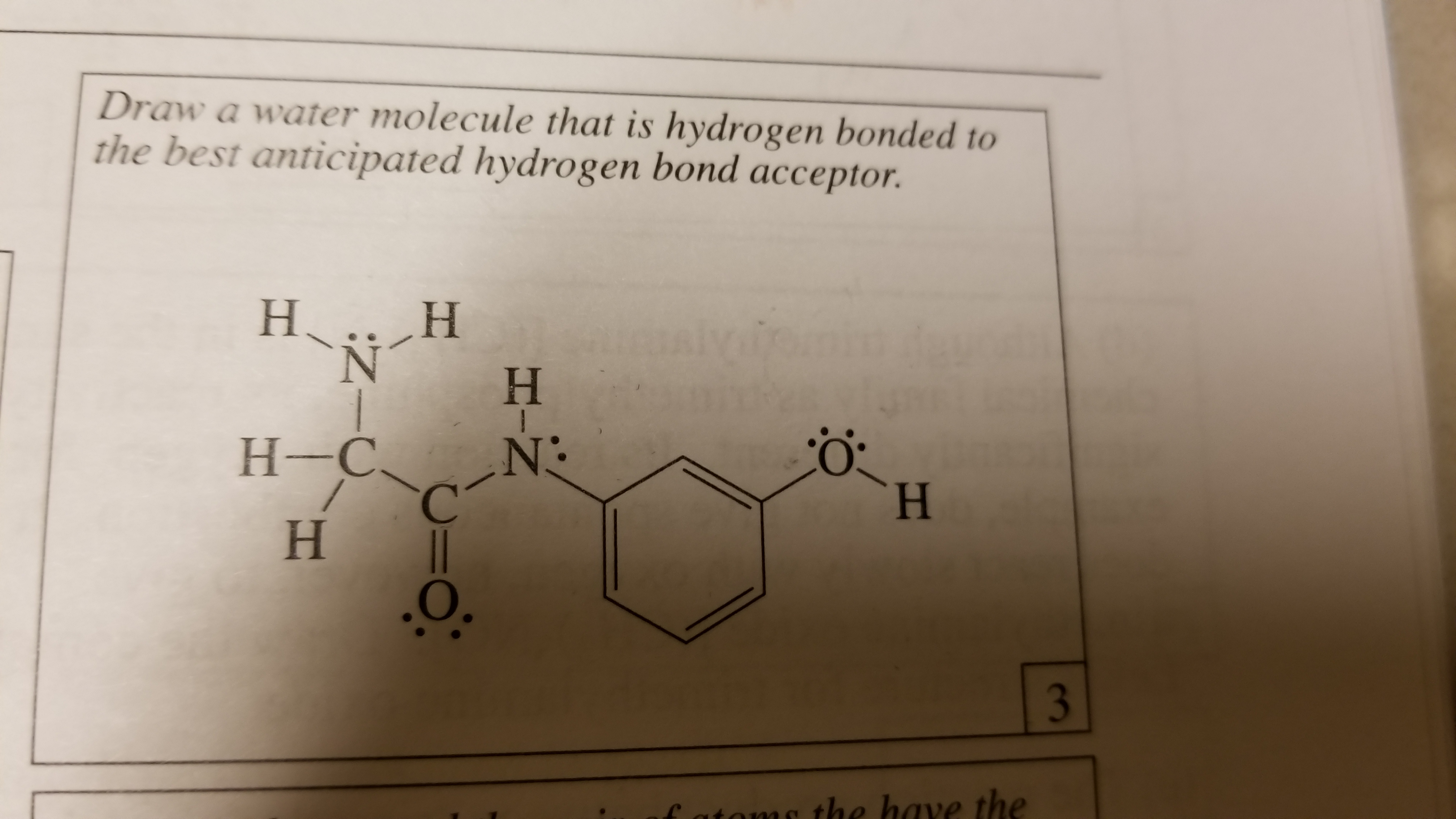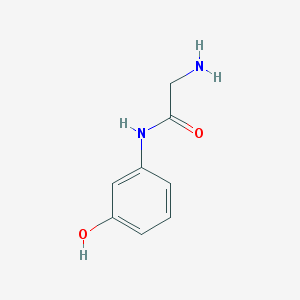I was preparing for my first exam in organic chemistry and came across this question.
Draw a water molecule that is hydrogen bonded to the best anticipated hydrogen bond acceptor.
2-amino-N-(3-hydroxyphenyl)acetamide, PubChem CID: 20238693
I was thinking that it would be one of the oxygens, because of its greater electronegativity compared to nitrogen. However, I'm having a little trouble distinguishing which oxygen.
I'm leaning towards the alcohol group. My reasoning is that there is less steric hindrance preventing solvation, but I am not sure.


